
"Open Up" is a song by British electronic duo Leftfield featuring John Lydon. It was released as a single on 1 November 1993 by Hard Hands label. The single reached number 13 on the UK Singles Chart, number one on the Music Week Dance Singles chart and number 39 in both Australia and New Zealand. NME reported in their 18 September 1993 issue, "This is the record that people have always wanted Lydon to do." In 2014, the same publication ranked "Open Up" at number 444 on their list of the "500 Greatest Songs of All Time". A black-and-white music video was produced to promote the single, directed by British director Lindy Heymann.

"Tell That Girl to Shut Up" is a song written by American singer-songwriter Holly Beth Vincent and originally recorded by her band Holly and the Italians in 1979. A cover version by UK pop rock band Transvision Vamp was released in 1988 as the second single from their debut album Pop Art. In Australia, "Tell That Girl to Shut Up" was released in 1989 as the third single from the album, following the 1988 release of "Revolution Baby".
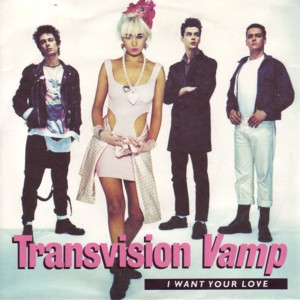
"I Want Your Love" is the third single from the English rock group Transvision Vamp, released in 1988 from their debut album, Pop Art (1988). It was the band's first UK top-40 hit, reaching number five in July 1988. It also peaked atop the Norwegian Singles Chart the same year and reached number one in South Africa the following year.

"Travellers Tune" is a song by English rock band Ocean Colour Scene. American soul singer P. P. Arnold provides additional vocals on the track. The song was released on 25 August 1997 as the second single from the band's third studio album, Marchin' Already (1997), and reached number five on the UK Singles Chart.
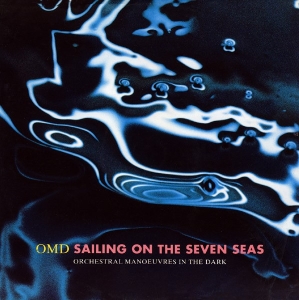
"Sailing on the Seven Seas" is a song by English electronic music band Orchestral Manoeuvres in the Dark (OMD), released on 18 March 1991 by Virgin as the first single from their eighth studio album, Sugar Tax (1991). Along with 1981's "Souvenir", it is the band's highest-charting UK hit to date, peaking at number three on the UK Singles Chart. It also charted at number three in Austria and Sweden, number five in Ireland and number nine in Germany. The single was the first to be released by OMD without co-founder Paul Humphreys, who had left to form his own band the Listening Pool.

"How Can You Expect to Be Taken Seriously?" is a song by English synth-pop duo Pet Shop Boys from their fourth studio album, Behaviour (1990). It was released in the United Kingdom on 11 March 1991 as a double A-side with "Where the Streets Have No Name ", serving as the third single from Behaviour. For the single, Brothers in Rhythm remixed the track. The track was subsequently released as a solo single in the United States and France; it peaked at number 93 on the US Billboard Hot 100. As "Being Boring" and "It's Alright" were not released in the US, tracks from these releases were used on a number of US releases. The accompanying music video received heavy rotation on MTV Europe.
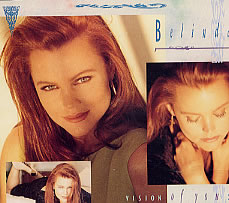
"Vision of You" is a song by American singer Belinda Carlisle, released as the fifth single from her third solo album, Runaway Horses (1989). The song was released on May 14, 1990, in the United Kingdom and reached number 41. A year later, it was remixed and re-released on 12-inch vinyl with a live version of "Heaven Is a Place on Earth", but this release charted lower, at number 71.

"Do You Feel Like I Feel?" is a song by American singer Belinda Carlisle, released as the second single from her fourth studio album, Live Your Life Be Free (1991). It became Carlisle's last single to chart on the US Billboard Hot 100, peaking at number 73.

"Be Happy" is a song by American singer Mary J. Blige. It was written by Blige, Sean "Puffy" Combs, Arlene DeValle, and Jean-Claude Olivier from duo Poke & Tone for her second studio album, My Life (1994), while production was helmed by Combs and Olivier. "Be Happy" contains an instrumental sample of the song "You're So Good to Me" (1979) by musician Curtis Mayfield and a re-sung vocal portion of the record "I Want You" (1976) by Marvin Gaye.

"Love Train" is a song by English singer Holly Johnson, released on 9 January 1989 as the lead single from his debut solo album, Blast (1989). It was written by Johnson and produced by Andy Richards and Steve Lovell with additional production by Stephen Hague. The song reached No. 4 in the United Kingdom, spending 11 weeks on the chart, and was certified silver by British Phonographic Industry (BPI) in February 1989. In the United States, the song reached No. 65 on the Billboard Hot 100.

"Where Has Love Gone?" is a song by British singer-songwriter Holly Johnson, released in 1990 as the lead single from his second studio album Dreams That Money Can't Buy (1991). The song was written by Johnson and produced by Andy Richards.

Dreams That Money Can't Buy is the second solo album by English singer Holly Johnson, released by MCA Records in 1991. The album was produced by Andy Richards, except "Penny Arcade" which was produced by Dan Hartman.

"If Looks Could Kill" is a song by English alternative rock band Transvision Vamp. It was the second single taken from their third album, Little Magnets Versus the Bubble of Babble (1991), and served as the band's final single. Released on 10 June 1991, the song reached number 41 on the UK Singles Chart and number 38 in New Zealand.

"Soul Destruction" is a song by English pop band T'Pau, released on 30 September 1991 as the third single from their third studio album, The Promise. The song was written by vocalist Carol Decker and rhythm guitarist Ron Rogers, and was produced by Andy Richards. It peaked at number 79 on the UK Singles Chart.

"Walking Down Madison" is a song by Kirsty MacColl featuring Aniff Cousins, released by Virgin Records on 7 May 1991 as the lead single from her third studio album, Electric Landlady. It charted at No. 23 on the UK Singles Chart and impacted a number of Billboard charts.

"Just a Dream" is a song recorded by American singer Donna de Lory for her eponymous debut studio album (1992). It was released as the album's second single on March 9, 1993, by MCA Records. The song was written and produced by Madonna and Patrick Leonard while composing the former's fourth studio album, Like a Prayer (1989). Since Madonna felt "Just a Dream" would not suit her discography, she gave it to de Lory for recording. After release, the song received mixed review from critics. "Just a Dream" debuted and peaked at number 71 on the UK Singles Chart and reached number ten on the US Dance Club Songs and number 17 on the Dance Singles Sales charts, respectively.

"Play with Me (Jane)" is a song from the British pop duo Thompson Twins, which was released in 1992 as a single from Songs from the Cool World, the soundtrack release for the 1992 film Cool World. The song was written and produced by Alannah Currie and Tom Bailey.
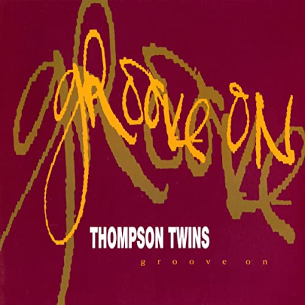
"Groove On" is a song from the British pop duo Thompson Twins, which was released in 1992 as the third single from their eighth studio album Queer (1991). The song was written and produced by Alannah Currie and Tom Bailey.
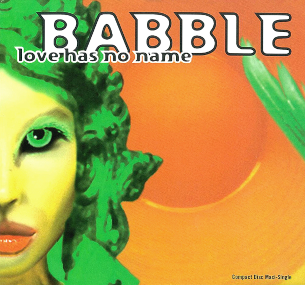
"Love Has No Name" is a song from British-New Zealand electronic dance music group Babble, which was released in 1996 as the sole single from their second and final studio album Ether. The song was written by Alannah Currie (lyrics) and Tom Bailey (music), and was produced by Bailey, Currie and Keith Fernley. It reached number 10 on the US Billboard Hot Dance Music Club Play chart.

"The Saint" is a song from the British pop duo Thompson Twins, which was released in 1992 as the second single from eighth studio album Queer. The song was written and produced by Tom Bailey and Alannah Currie.




















